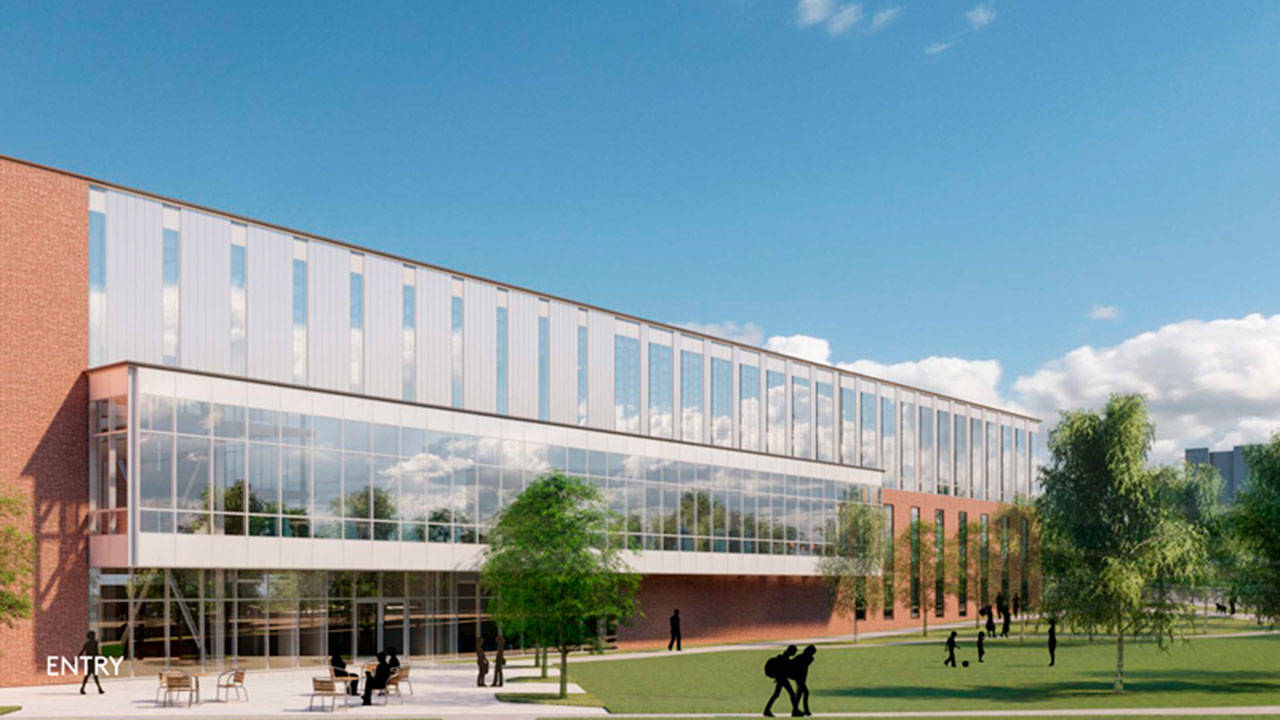By The Herald Editorial Board
Yet another difference between the two Washingtons — if you needed another example — Washington state lawmakers appear to agree on the definition of infrastructure and the importance of bipartisan agreement on needed capital project investments and the jobs they create and support.
While parties in Congress and the Biden administration argue over whether “infrastructure” should count as more than roads and bridges, Democrats and Republicans in Olympia appear to have long ago settled on a definition that — with separate budgets for transportation and capital projects — includes a broad range of investments in schools, colleges and universities; water, sewer and other public works; housing; parks and recreation; public lands and environment; and, more recently, broadband internet service.
While some final adjustments have to be agreed to, lawmakers in both House and Senate in the state Legislature have adopted their capital budgets, which — apart from the larger two-year operating budget — set a list of construction projects and programs as well as the funding each would receive in a final budget for the coming biennium.
Because they allow legislators to shepherd passage of important projects in their individual legislative districts, the budgets traditionally are less contentious and more easily find bipartisan agreement. That’s been the case this year with unanimous approval of the budgets by both chambers. The exception was in 2017 when Republicans, pushing for a resolution to a water rights issue, held up approval of a $4.2 billion capital budget — including millions in Snohomish County projects — until an agreement allowed for the budget’s passage the following January.
“The capital budget doesn’t get as much attention as other spending plans, but it should. This budget puts people before politics,” Rep. Mike Steele, R-Chelan, the ranking member of the House Capital Budget Committee, said in a release. “It’s truly a 100 percent bipartisan effort; something that can’t be said about the state’s other spending plans, which usually devolve into partisan disagreements on policies and priorities.”
The capital budget this year has enhanced importance as state communities work to put the pandemic behind them, noted Sen. David Frockt, D-Seattle, the Senate Democrats’ chief capital budget writer.
“This budget makes investments across the state that will jump-start our economic recovery and build long-term prosperity for all Washingtonians,” Frockt said in a statement in late March. “In every area, we are funding projects that will help build a stronger, more equitable state.”
Both budgets list substantial — if sometimes different — sums for construction at public K-12 schools, colleges and universities; grants and loans for county and municipal public works projects; a state housing trust fund and affordable housing and homelessness relief projects; park facilities and grants for parks and public lands through the Washington Wildlife and Recreation Program; estuary restoration, clean water and pollution clean-up projects and programs; behavioral health facilities; and expansion of broadband internet access, in particular to the state’s communities under-served by internet providers.
The Senate budget, for example, would invest $490 million in improving broadband access throughout the state, a recommendation of a state committee on economic recovery. With that funding nearly secured, The Herald Editorial Board repeats its message from earlier this week, calling on Snohomish County residents to take a state Department of Commerce survey and internet speed test to map under-served areas in the county.
Unanimity in each chamber, however, doesn’t mean there aren’t differences among the two chambers’ budgets in need of further negotiation. The Senate’s budget accounts for $6.2 billion in spending and bonding, while the House budget totals $5.7 billion, a difference of about $500 million.
One of those differences regards funding for construction of a new Learning Resource Center at Everett Community College, replacing the Library Media Center, built in 1988, following the 1987 arson that destroyed the college library and cost the life of an Everett firefighter. The current library serves a student body that has tripled in size since it was built. The new Learning Resource Center will house the college’s library, tutoring center, writing center, eLearning, instructional media services and the Center for Transformative Teaching.
While the Senate budget allocates $48 million toward the new library, the EvCC project is absent from the list of community college projects in the House budget.
Leaving it out of the final capital budget would delay the center’s opening well past its completion, now scheduled for March 2023, perhaps by as much as two years if funding had to wait for the next capital budget.
As EvCC’s Learning Resource Center represents the only higher education construction project in Snohomish County listed in either chamber’s budget, leaving it out of the final negotiated budget would represent a missed opportunity for support of higher education here.
As is being discussed now on state and national levels, the investments being considered don’t come cheap, but they represent opportunities that provide a foundation of infrastructure for business and our economy; schools and education; parks and environment; transportation; community health and well-being; and they represent construction jobs and support for jobs in the future.
After more than a year of pandemic doldrums, a state capital budget that is robust and addresses needs throughout the state can help drive our recovery and progress.
Talk to us
> Give us your news tips.
> Send us a letter to the editor.
> More Herald contact information.

























